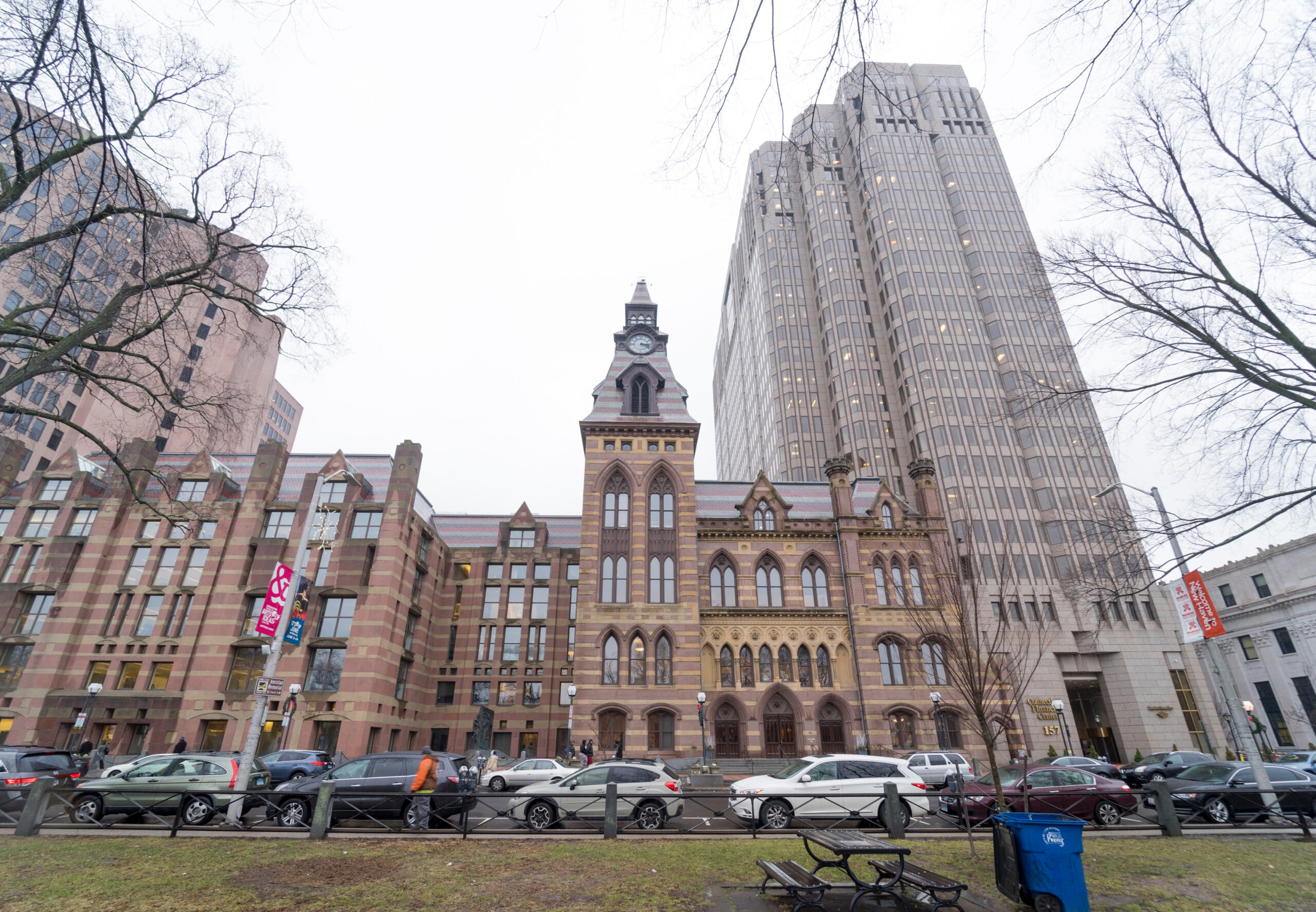Trump threatens funding cuts to sanctuary cities like New Haven
On Monday, the president signed an executive order instructing all federal agencies to identify potential funding cuts to sanctuary cities.

Yale Daily News
In an executive order Monday, The Trump administration threatened to withhold funding from sanctuary cities, a move which could jeopardize federal funds for New Haven.
The executive order is part of a series of federal actions intended to curb local policies which limit cooperation with federal immigration authorities. The order requests that the Attorney General and Department of Homeland Security compile a list of sanctuary jurisdictions and demands that all executive agencies identify federal grants to those municipalities which could be cut.
The order also targets state and local laws that grant in-state tuition to non-citizens and calls on agencies to limit public benefits going to non-citizens.
“We can’t stop the federal law enforcement from coming into the city and taking action,” New Haven Mayor Justin Elicker said in a Wednesday press conference. “We can educate people on their rights and continue to express that our values and our staff are focused on welcoming and engaging with everyone because that makes our city safe.”
Elicker declared New Haven a “Welcoming City” in a July 2020 executive order, which prohibits city employees from asking for a person’s immigration status unless required by law or for the purposes of a criminal investigation. In 2007, the city began issuing Elm City Resident Cards, a secondary identification tool that allows people access to public services regardless of immigration status.
In January, President Trump issued an executive order titled “Protecting the American People Against Invasion,” which directed the Attorney General and Secretary of Homeland Security to withhold federal funds from sanctuary jurisdictions. Monday’s order instructs all federal agencies to do the same.
New Haven, alongside four jurisdictions on the West Coast, filed a lawsuit challenging the order. The complaint cites over $104 million in federal grants which New Haven has received in recent years, including over $6 million from the Department of Justice, and contends that the proposed funding cuts would harm public safety in the city. On April 24, a district judge in Northern California ruled in favor of the plaintiffs, ordering an injunction against any potential funding freeze.
Elicker said the ruling may apply to Monday’s new executive order.
“The most recent executive order is more expansive, and we’re evaluating that right now with our legal team,” Elicker said. “It appears to violate the preliminary injunction as well, although the lawsuit was specific to DOJ and homeland security funding.”
Glenn Formica, an immigration attorney in New Haven, suspects that the executive order will require a new injunction, but also doubts the legal validity of the order altogether.
The order is an attempt to withhold money Congress has already appropriated, Formica said. In general, he added, the president does not have the power to deputize states and municipalities to assist law enforcement.
“ICE can operate anywhere it wants in the City of New Haven and carry out arrests,” Formica told the News. “All the City of New Haven has done is this sort of statement of principles.”
The Supreme Court will eventually have to decide whether the president has the authority to withhold funds for failing to cooperate with immigration authorities, Formica said. The issue is particularly thorny given the lack of Congressional legislation requiring cooperation.
Integrated Refugee and Immigrant Services, or IRIS, a local non-profit that provides legal, employment, and housing assistance to immigrants, lost $4 million in funding when the Trump administration paused humanitarian aid in January. In light of the cut, IRIS announced that it would close its New Haven office.
The existing lawsuit is one of many measures New Haven has taken against the Trump administration. In a press conference Wednesday, Elicker outlined the impacts of Trump’s first 100 days in office and detailed the city’s responses.
Last week, New Haven joined as a plaintiff in The Sustainability Institute et al vs. Trump et al lawsuit, which contests funding freezes that have impacted climate and environmental work. Elicker said the city has joined amicus briefs in a number of other cases, including efforts to resist National Institute of Health research cuts.
Elicker explained that seven federal grants have been impacted by Trump’s executive actions, including climate, health and Federal Emergency Management Agency funding. The Trump administration has currently suspended $27 million in federal aid to New Haven, Elicker said.
“While the task has clearly gotten harder, we’ve worked too hard and come too far, and we’re not going back,” Elicker said. “We will continue to work together to ensure New Haven is a place where everyone has an opportunity to thrive. Now is the time to put our feet on the gas of resistance.”
As of Thursday, President Trump has signed 139 executive orders in his second term.
Interested in getting more news about New Haven? Join our newsletter!







